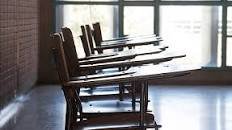More NYC schools to use listening strategy to elevate social-emotional learning following physics teacher’s revelation

More schools now are taking a closer look at the practice and strategy of listening as districts elevate social-emotional learning. This was following a physics teacher’s report of positive overall classroom experience after employing the listening strategy.
The practice often hinges on shifting the power dynamic.
It creates space for students to critique what is or isn’t working in the classroom. Also, it is an avenue for teachers to incorporate that feedback into their instruction.
This is a way to address the startlingly high student mental health and academic needs exacerbated by the pandemic.
To her relief, Elissa Levy’s ninth graders remembered how to make friends when they returned this September to East Harlem’s High School for Climate Justice.
But after spending prolonged time out of the classroom during the pandemic, they seem to have forgotten how to “do” other parts of school, the physics teacher said.
Many are about four or five years behind academically, as opposed to the past when her students were about two to three years behind.
Some have been cutting class, hiding in bathrooms and stairwells during the day. Those who show up have been spending class time dancing to TikTok videos, doodling on furniture, and generally acting out.
Levy is trying everything in her toolkit to help them feel engaged in coursework again.
One thing that’s helped is a practice known as cogenerative dialogues, or cogens, for short, in which teachers hold formal conversations with groups of students with an explicit goal: to create a plan of action aimed at improving learning and classroom community.
School leaders in New York City and across the nation have been reaching out “more than ever before” about cogens, said Emdin, a professor at the University of Southern California and Scholar/Griot in Residence at Manhattan’s Lincoln Center for the Performing Arts.



